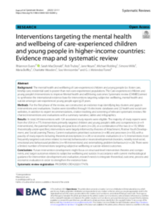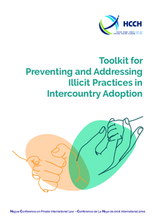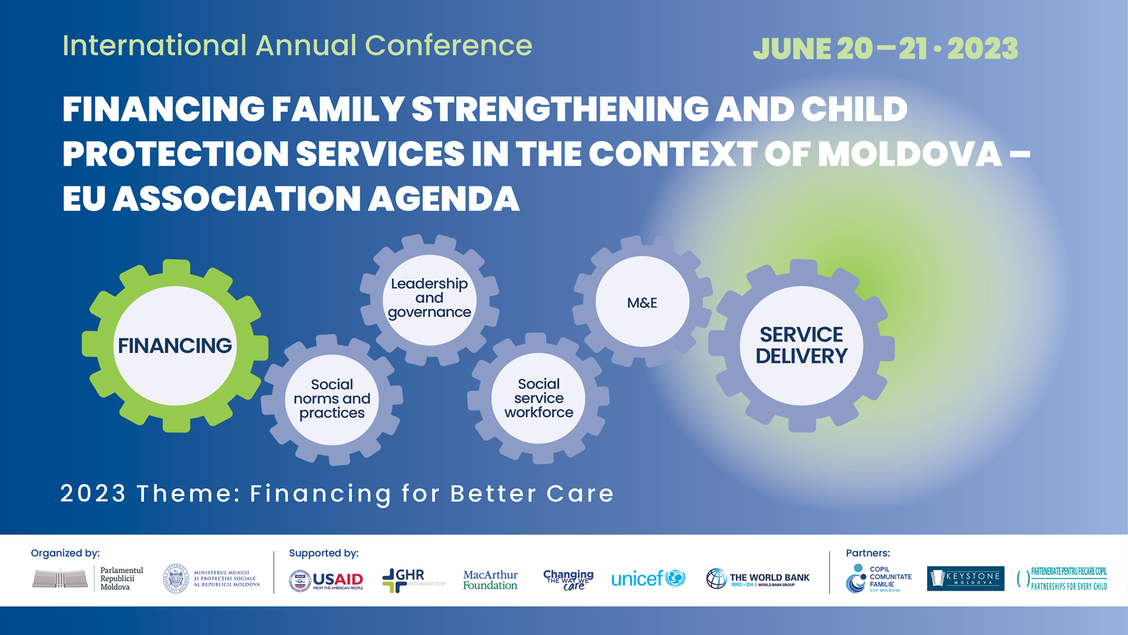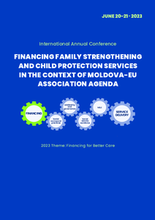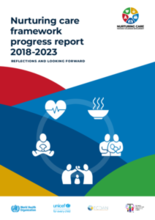Displaying 491 - 500 of 4424
This global systematic review aimed to synthesise the international evidence base for interventions targeting subjective wellbeing, mental health and suicide amongst care-experienced young people aged ≤ 25 years.
Join ECDAN for the launch of the Nurturing Care Framework Progress Report 2018-2023: Reflections and Looking Forward. This webinar will reflect on achievements (2018 to 2023) across the five strategic actions of the Framework and define areas that merit further attention going forward.
This toolkit provides Central Authorities with a template for how they could respond to queries from victims of illegal and illicit adoptions.
This World Health Organization (WHO) progress report looks back on the five years since the Nurturing care framework was launched. It documents achievements and presents areas for future action. Annotated with stories of change, the report provides a snapshot of progress in relation to each of the five strategic actions of the Framework and shows the breadth of activities that have been undertaken.
This ECDAN webinar discussed the current state of parenting support in crisis, efforts to deliver parenting interventions, and recommendations for delivery.
The aim of this child-centered project is to provide the opportunity for children who have experienced hostile environments and inappropriate care to become aware of, regulate, and express their inner socio-emotional world via tactile and visual experimentation with eMoBo so that they might more easily communicate their feelings and needs with non-biological caregivers, striving for a significant, long-standing improvement in the wellbeing of these children. In this paper, the authors present our designs and envision their use in two use cases.
From the perspective of 45 years working with children and young people in care, the presenter looks back at the received wisdom in the field and how this has significantly changed in the light of recent research in neuroscience.
The Joint Social Work Education and Research Conference is the UK's only conference covering the whole of the social work field. This year’s we welcome you to Glasgow city centre hosted by the School of Social Work and Social Policy, University of Strathclyde.
This webinar discusses new resources from Youth Thrive that you can use in your organization every day to help young people build their protective and promotive factors. Whether you are already working with youth, or looking to expand the reach of your Strengthening Families efforts.

